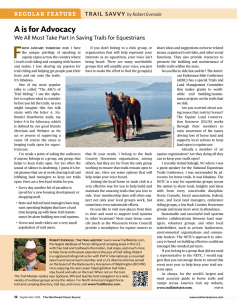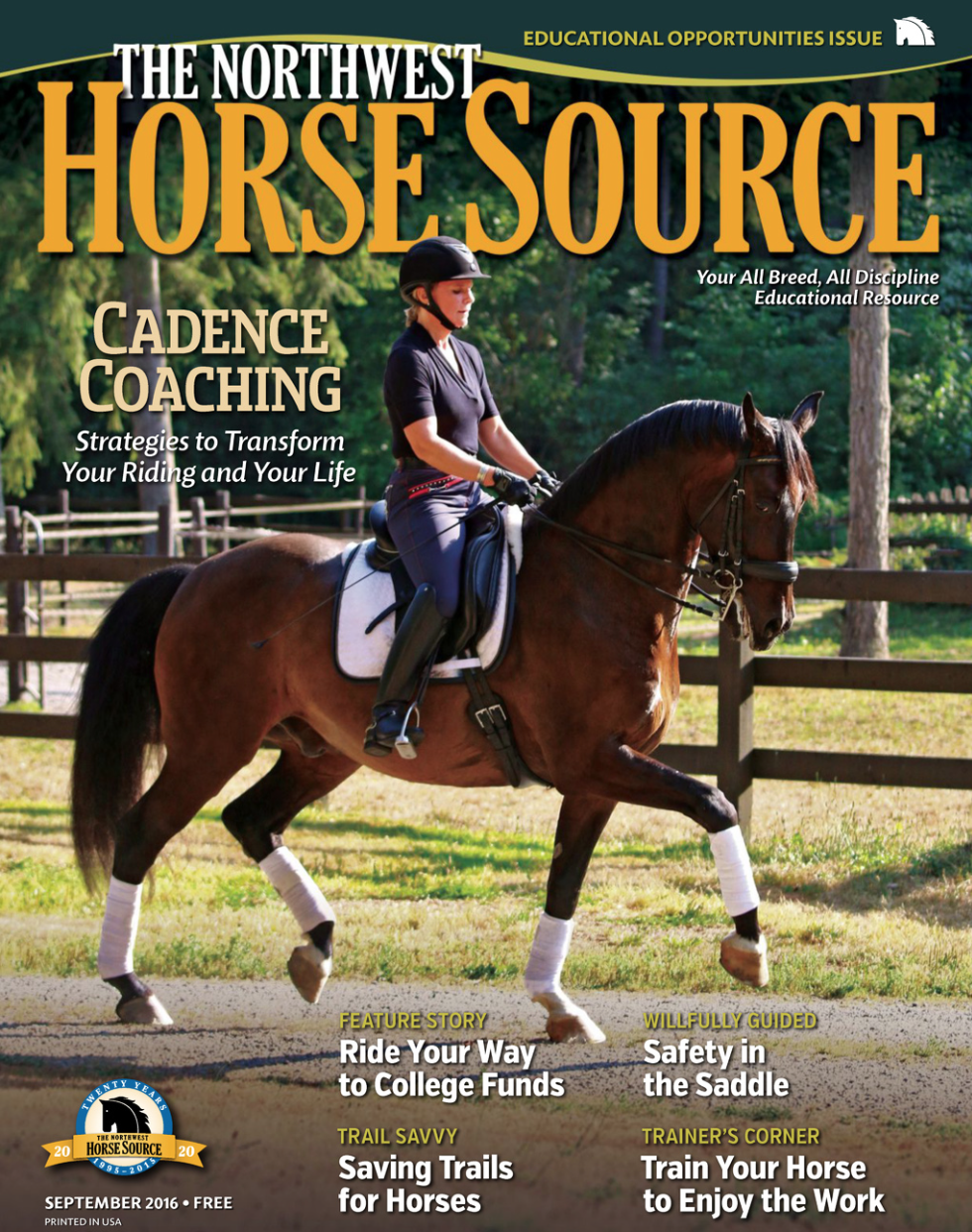 A is for Advocacy
A is for Advocacy
As Published in The Northwest Horse Source – September 2016
From January through July I have the unique privilege of speaking at equine expos across the country where I teach trail riding and camping with horses and mules. I love sharing my passion for trail riding and helping get people past their fears and out onto the trails. It’s a wonderful thing.
One of my most popular talks is called “The ABC’s of Trail Riding”. I use the alphabet to explore what to consider before you hit the trails. As you might imagine this fun talk starts with the letter “A”. Nathaniel Hawthorne aside; my letter “A” is for Advocacy which is defined by our good friend Merriam Webster as “the act or process of supporting a cause”. Of course the cause is keeping trails open to equestrian use. I’ve made a point of asking the audiences if anyone belongs to a group, any group, that helps to keep trails open. Far too often the sound of silence is deafening. I guess it’s forest gnomes that are at work clearing trail and lobbying land managers to keep our trails open.
Here are a few hard truths for you.
- Every day another bit of paradise is paved for a new housing development or shopping mall.
- State and Federal land managers have stagnant operating budgets that have a hard time keeping up with basic trail maintenance let alone building new trail systems.
- Horse and mule riders are a very small population of trail users.
If you don’t belong to a club, group, or organization that will help represent your interests as an equestrian, your voice isn’t being heard. There are many worthwhile groups that will amplify your voice, you just have to make the effort to find the groups(s) that fit your needs. I belong to the Back Country Horsemen organization, among others, but they are far from the only group working ensure that trails remain open to stock use. Here are some options that will help make your voice heard.
Joining the local horse or mule club is a very effective way for you to help build and maintain the amazing trails that you love to ride. Your membership dues will often support not only your local group’s work, but sometimes even nationwide efforts.
Like to visit new places from time to time and want to support trail systems in other locations? Most state horse councils (such as the Wisconsin Horse Council) provide a mouthpiece for equine owners to share ideas and suggestions on horse related issues, organized trail rides, and other social functions. They also provide resources to promote the building and maintenance of bridle trails within the state.
Like to ride fast and far? The American Endurance Ride Conference (AERC) has a special Trails and Land Management Committee that makes trails grants to worthwhile trail building/maintenance projects on the trails that we ride.
Worried about zoning issues that restrict horses? The Equine Land Conservation Resource (ELCR) works through their members to raise awareness of the issues driving loss of horse land and supports local actions to keep land open to equine use.
Already a member of an equine organization? Are they doing all they can to keep your trails open?
I recently visited Raleigh, NC where I was a guest speaker for the National Equestrian Trails Conference. I was surrounded by advocates for horse trails. It was fabulous. The NETC is a way for equestrian groups across the nation to share tools, insights and ideas with from every conceivable discipline. Horse Councils, breed associations, Federal, state, and local land managers, Endurance Ride groups, a few Back Country Horsemen groups and many more were in attendance.
Sustainable and successful trail systems involve collaborations between land managers, volunteer groups, and other local stakeholders, such as private landowners, environmental organizations and community leaders. The NETC’s approach to advocacy is based on building effective coalitions amongst like-minded partners.
If you belong to a group that did not send a representative to the NETC I would suggest that you encourage them to attend this event next year to help keep your trail systems open.
As always, for the world’s largest and most accurate guide to horse trails and camps across America visit www.trailmeister.com.


